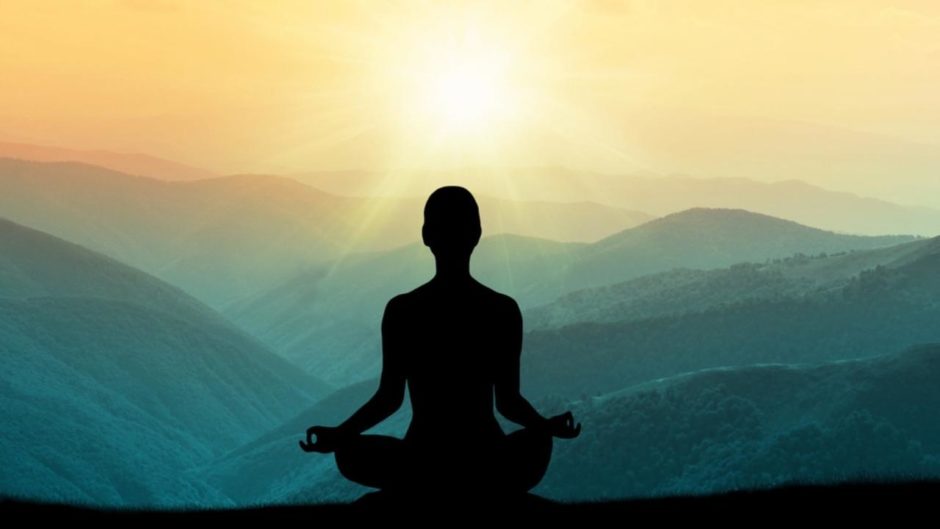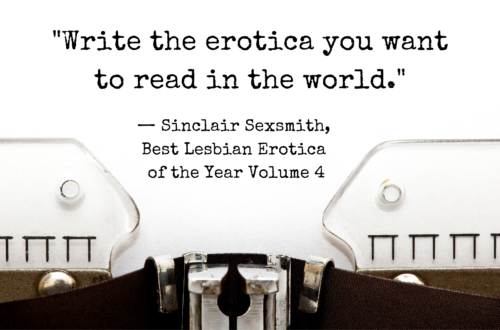This site contains explicit writings on kink practices, dominant/submissive relationships, and queer kink erotica (among other things). All characters in role play or non-consent scenes are consenting adults. Content warnings are included.
“Feel it fully.”
“Don’t shy away from your feelings.”
“Let all your emotions flow through you without getting attached to them.”
“Don’t push them away or resist them, they’ll just get stronger.”
“Just be with the pain.”
How many times have I heard these things? I’ve been studying self-actualization spiritual self-help psychological philosophy things in the “transformational communities” since I was in high school — that’s a good 20 years now. I couldn’t even count how many times I’ve heard these, or things like these. These kinds of aphorisms are so heavily embedded in almost all the narratives about bettering the self.
I have taken them in and internalized them and really truly believed that that is what I’ve been doing all along.
But I was wrong.
Well, maybe that’s too harsh on myself. (Wouldn’t be the first time.) Maybe it’s more that I was only capable of understanding or implementing it to a certain degree, and now I’ve leveled up, and a new understanding of it is unlocked. It’s harder to see it that way, and much easier to believe that I just had. It. Wrong. This. Whole. Time. But I do actually believe that “everyone is doing the best they can,” because well, if I could do better, I would.
Regardless: these teachings that I’ve been reading for years have led to the habits and techniques I have used over and over as coping strategies for my intense moods, thinking that I knew what they meant.
Some of those include:
- journaling all the feelings out
- journaling all my feelings out and telling elaborate stories about them
- journaling all my feelings out and telling elaborate stories about them and reaffirming those stories any time I re-wrote my feelings
- journaling all my feelings out and telling elaborate stories about them on the internet for an audience (that has continued to grow over the 12 years I’ve been doing this)
- talking to friends for hours and going over every little detail of the scenario
- chatting over telnet chatrooms, ICQ, message boards, Gchat, and iMessage to friends and strangers disclosing every little bit about my feelings that I can think of
- reading books and listening to podcasts that get down into the wound and poke poke poke at it
- internalizing the feelings and thoughts and beliefs into part of my identity and forming a self-image around them
- self-harm
- seeking experiences that raise the chemicals in my brain so I feel better, but that often results in a bigger crash
- seeking comfort food & drinks & sometimes drugs to feel better, which has led to all sorts of gut health issues, which they are now discovering is all the more linked to mental health and stability
- to paraphrase Brene Brown: I’m not an alcoholic, but I am a numb-aholic; I’ll use all sorts of things to numb out and not feel, in the name of coping and managing my feelings
I have absolutely confused coping and treatment — coping being the thing that will make me feel better in the moment, to lift me out of whatever particular hole I’m in so that I can actually be in a better frame of mind to make decisions and connection, and treatment being techniques during episodes and outside of episodes which will ultimately support getting better over time, though they often take more work in the moment.
I always thought I was “sitting with the hurt” while I journaled, talked it through with multiple people, called in sick to work or didn’t get anything done because I was too flooded with feelings, and focused brooding over feelings. That wasn’t the same as pushing the feelings away, denying they were even happening, and pushing through my day to day obligations pretending the feelings weren’t even there! So of course I was “sitting with the hurt,” right?
I mean, maybe? Maybe pushing feelings away is a whole other level of it, and what I’ve been doing is a version of “sitting with it” and feeling the discomfort and pain more than the denial and complete numbness is. So maybe I should give myself some credit here?
But what I now know is this:
I worked with some good therapists in 2017. I saw someone specializing in early childhood trauma, and someone else who primarily worked with mindfulness and trauma. For the first time, I started seeing the emotional reactions I was having as a “part” of me, in a family systems theory way. I started to be able to dialogue with that part — just a little at first, and then more.
This is kind of the stereotypical “inner child” work, and before 2017 I would have told you that I have so done that, I know all about it, I’m so over it, that’s not what I’m going through, it’s not relevant to this now. Ugh. I’m even a little embarrassed to admit that I haven’t already gone through that and triumphed — I mean, I’m 39, you know? I’ve been doing these kind of self-examination healing awareness processes since I was 14. So SO frustrating that I haven’t gone further already!
But. Okay, okay, that’s another judgement place: for whatever reason, I’m at a new place with it now. It’s okay. Maybe other people are over it before they’re 22 or whatever. I wasn’t. This is a new edge for me. Trying to let that be and be kind about it.
So I hit a breaking point in December, 2017. I’ve written some about what’s been going on between me and rife, and all of the old things and relationship trauma it’s been bringing up for me (someday I should go back and read all the posts on it, there aren’t all that many, and figure out what I have or haven’t written about — there’s so much missing, I’m not sure where to start now to keep telling you what’s been happening). In December, I had a “dark night of the soul” kind of month. I had started to make some progress and could, occasionally, watch myself reacting when I was getting triggered, rather than being completely identified with and consumed by the triggered feeling state. But those states were still so constant — sometimes one thing would set me off for a day or two, sometimes a week, sometimes longer.
It became clear to me, though, that having some space between the “adult” functional self part of me and that part of me that was having a trauma reaction was the key to softening the impact of the trauma reaction on me — and on rife. I kept studying, therapizing, and practicing mindfulness as much as possible. My understanding is that cultivating that distance takes a lot of time, so it wouldn’t happen quickly, and that constant, diligent practice is what helps. My intention was to develop a stronger sense of that adult-functioning-part, understand the trauma-reaction (-child) part more, and cultivate my mind’s ability to be less identified and have more distance between the two parts, so that I could not do some of my own self-soothing and not be so overwhelmed and controlled by the triggered response.
One major tool that came to mind here is meditation. At its best, it cultivates the ability to watch the thoughts the mind is putting forth and both stay calm and let the thought go without taking it too seriously and identifying with it. I’ve been studying meditation since high school, but I only really understood how to do it and started a regular practice of it when I was in New York and learning from Sharon Salzberg, then studying at the Interdependence Project. At that same time, I was diving into work with the crew that is now Body Trust, and that too encouraged and bolstered my study of meditation. Body Trust has in the past hosted twice-weekly online morning meditations, and I started those back up in January 2018 — we’ve been going ever since, and I’ve only missed a few, and often meditate more often than twice a week. Still aiming for daily, though that’s only occasionally.
I definitely think that cultivating that practice helped.
In January or February, can’t quite recall, I started diving in to the tarot practice that I’ve been writing about quite a bit, and tried a new experiment with journaling: rather than writing out my feeeeeeelings and telling myself my own version of what is happening, over and over, and seeing the writing which made the story even more true, and sharing the story which made the story even more true, I would try to journal less and write more, and I would use tarot to journal. This helped with distance too, and with softening my identification with the stories. Tarot kicked my ass, man. It told me all sorts of truths that I don’t think I would have come to otherwise, and shook me up out of my habits in ways that really supported the changes.
In March, things came to a head again. (Am I the only one who thinks about pimples when I hear that phrase? I should use a different phrase.) It was another “dark night of the soul,” or maybe it was a different kind. I was facing some decisions about moving forward, and the best path of the three major options was in the long run the least painful, but in the short run felt like dying. Felt like annihilation. Felt like the destruction of everything I knew and loved and trusted. Yeah, that all sounds very dramatic — but that’s how trauma talks and feels, especially when it is being threatened with healing or change. It wants to grip so tightly that it stays right where it is, thank you very much, doing its very important job of protection.
So I tried a new thing — or rather, I tried the same thing I thought I was doing, but I tried it with new tools: I sat still with the pain of it. With the death and annihilation and destruction. I sat in this chair I am sitting in right now and I watched the pain happen. I saw the reactions. Sometimes it took all my effort to sit still. Sometimes I slid down onto the floor and sobbed for an hour. I could barely think about anything else. I woke up and gasped for breath and started crying immediately. It would hit me at odd moments and I found myself on the bathroom floor, on the floor in the shower, on the floor in the closet holding a shirt I was going to put on.
rife wanted to help. I know he did. I was pretty sure he couldn’t. I just needed to feel into it, all the way, and to watch myself feel it, and to be okay with it happening.
This is just going to happen, I’d tell myself. This is just how it is. I don’t know how long this will hurt. Maybe forever. But everyone says that if I sit with it and watch it and soften toward it, it will change. It’s been one day, it’s been two days, it’s been three days and I haven’t seen it change, but what else can I do? This is the best option. This is the way forward.
Sometimes I could say hello. Hello, you who are suffering, you who are in pain. What do you need? Can I hold you? I can tell it hurts so much. I see you hurting. You are safe, you are safe.
Sometimes all I could do was whisper, “I am so angry. I am so sad. I can’t believe this is my best option. I am so angry that I am in this situation, that this is what I have to do to go forward.”
On the fourth day, I was home alone for a long evening, trying to take care of myself while in a moderately triggered state. I sat still for a while. I probably cried for a while. I tried to tell myself some of the little mantra sayings that I’ve collected over the years, the deep beliefs I have in moving through difficulty and joy and making meaning — like: raise your heart. What is the hidden gift? You already have what you need. Resisting pain causes more suffering. You already have what you need. And I got this instinct to go play with the little scraps of paper I’d started to collect all of those sayings on, and somehow, I was divinely driven to create this oracle deck. It’s still a very mysterious process to me; I’d never made anything like them before, and they came together with such perfect moments — like I had exactly 20 blank cards, and I randomly pulled exactly 20 images out of this pile of magazine clippings, and the sayings and the pictures matched up completely.
And the sobbing stopped. Those moments of absolute annihilation and terror stopped. I mean, not really completely, but for the moment — that particular crisis shifted.
It’s not like I now feel like I’m a pro at “sitting with it” and I can just do that and things are fine. But my reactions have extremely shifted, and I understand this skill and technique and what the aphorisms really mean in a way I never have before.
It feels amazing, really — to suddenly really get a concept that I thought I’d been working with for years, for decades. I didn’t know that I didn’t know how it really worked, or could work. I thought I’d been practicing it all this time. It’s still hard not to beat myself up about that, or not to be angry at the world for not telling me sooner that I wasn’t doing it “right.” But for whatever reason, this spring was when I was actually ready to hear it, and now, finally, all the different threads of work and insight and study that I’d been doing came together, and something is … better.





Jeez, Sinclair. I was so moved by the vulnerability and honesty in this. Some parts felt like I could have written them myself – like how annihilation and destruction aren’t melodramatic, they’re just the language of trauma – which I don’t say to invalidate your skill here, just that you spoke to something so deep and human and real. Thanks for telling these stories, especially.
Thank you for sharing, Master..
I think there’s so much here worth sharing. I really appreciate you sharing your process.
It really reminds me a lot of that point in weightlifting when you can deadlift your bodyweight but you hurt yourself, and you go to the experts and correct your form and it turns out you can’t lift as much as you thought you could when you did it before. It’s humbling but you can also grow so much more when you go back like that. I remember that every time in the gym.
Anyway, I’ve been thinking a lot about the storyteller and how one could write without tying the information together, like beautiful bondage, into stories. I think your tarot example is a brilliant way to circumvent that. It would be an interesting practice to journal in a journalist style, where you’re not allowed to add any assumptions or casualties or conclusions, only report the facts of the situation and feelings. Just as a writing challenge.
Anyway I adore you and your practice and your struggle and your strength and your humanity.
If I assembled my ideal Master from scratch, they would look just like you.